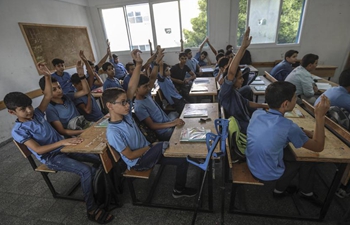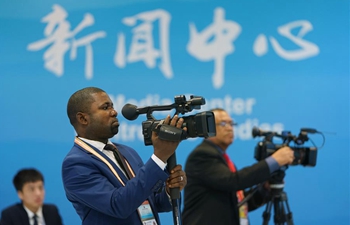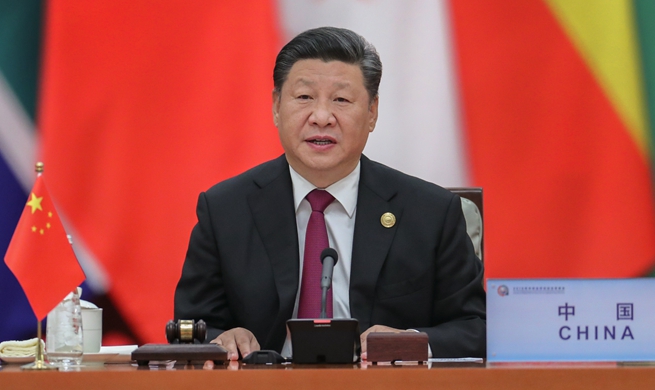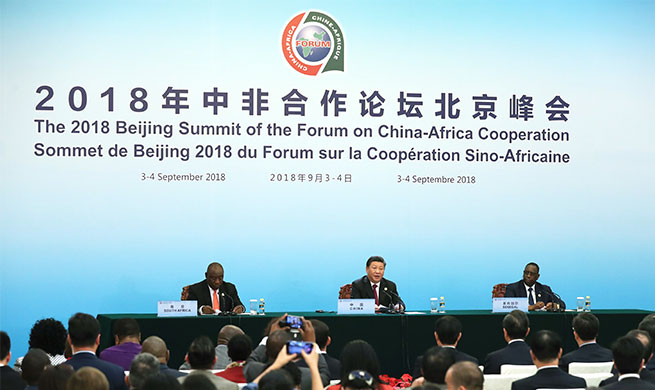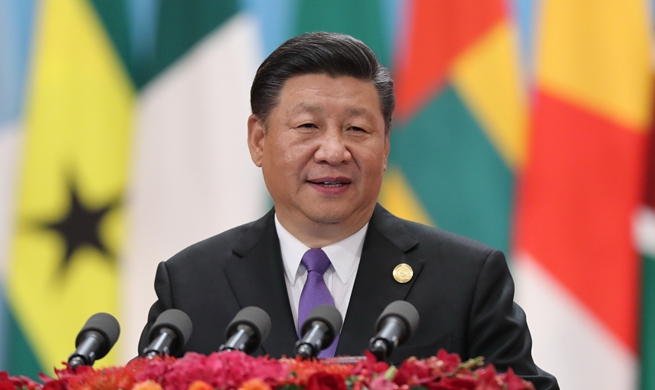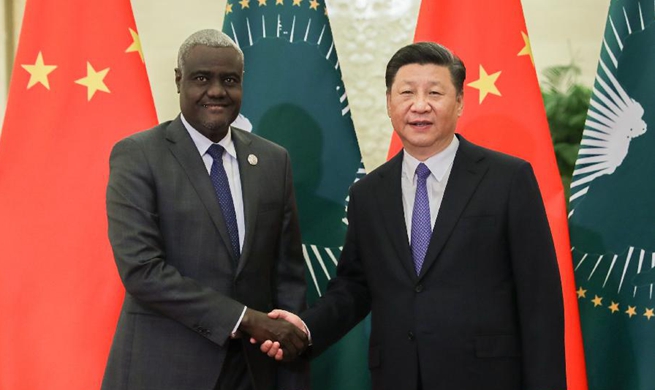UNITED NATIONS, Sept. 4 (Xinhua) -- China on Tuesday outlined principles to aid in the creation of the world's first-ever legally-binding treaty addressing biodiversity in the high seas, defined as open ocean far from a coastline.
At the first session of the negotiations on the conservation and sustainable use of marine biological diversity of areas beyond national jurisdiction (BBNJ), Deputy Director-General of the Department of Treaty and Law of the Chinese Ministry of Foreign Affairs Ma Xinmin, who headed the Chinese delegation, emphasized four principles.
As the first principle, Ma said negotiations on the instrument should be based on consensus and that parties should avoid decision-making by taking votes.
"Experience has shown that an international instrument that emerges from voting may fail to fully accommodate the concerns of all parties, unable to be widely accepted and would be difficult to interpret, apply and implement after its entry into force," he explained.
Ma went on to stress the talks should be based on the UN Convention on the Law of the Sea (UNCLOS), adopted in 1982, in line with the 2017 UN General Assembly resolution which set stage for the meeting.
"It (the instrument) should supplement and improve on the Convention, not depart from its principles and spirit, jeopardize the institutional framework of the Convention, or contradict existing international laws and global, regional mechanisms governing the ocean," he said.
Thirdly, the treaty should strive to maintain common interests, as "we are a community of shared future and share common interests regarding the conservation and sustainable use of marine biological diversity of areas beyond national jurisdiction," Ma said.
Last but not least, the institutional design of the treaty should balance the interests of all parties and all sides to avoid favoring one over the other.
Ma said the Chinese government attaches great importance to the conservation and sustainable use of marine biodiversity of areas beyond national jurisdiction and will continue to conduct in-depth discussion and consultation with all parties on the relevant issues in a constructive and open manner.
According to a policy brief circulated at the session, areas beyond national jurisdiction make up 64 percent of the oceans, nearly half of the planet's surface and over 90 percent of its habitable volume; it plays a critical role in the international community's efforts to achieve objectives prescribed in the Sustainable Development Agenda of the UN.
In 2002, a UN informal consultative process discussed the protection of marine environment, setting off a journey toward formal treaty negotiations under the UNCLOS.
Last December, the UN General Assembly adopted a modality resolution that set the stage for Tuesday's meeting.
Rena Lee, president of the conference, said in her opening remarks "this day has been a long time in coming for many who have been working on these issues for many years," expressing her hope that "we can work together as a whole to move the process along to a successful conclusion."
Miguel de Serpa Soares, the UN under-secretary-general for legal affairs and the secretary-general of the conference, expressed confidence that the first session will be fruitful and lead to the development of an instrument that all delegations can agree to.
"There is ample evidence of increasing pressures on oceans," he said. "If such pressures and their impacts are not addressed, their cumulative effect will lead to a destructive cycle in which the oceans will no longer be able to provide many services that humans and other life on this planet depend on."
"Sustainable oceans and seas can contribute to poverty eradication, sustained economic growth, food security and creation of sustainable livelihoods," Soares said, adding that protecting the marine environment will also help build resilience to the impacts of climate change.
Lee also expressed hope that the delegations will move towards to "a fair, balanced and effective outcome," which "reflects our varying concerns and interests."
The conference will meet initially for four sessions, with the second and third taking place in 2019 and the fourth in the first half of 2020.




